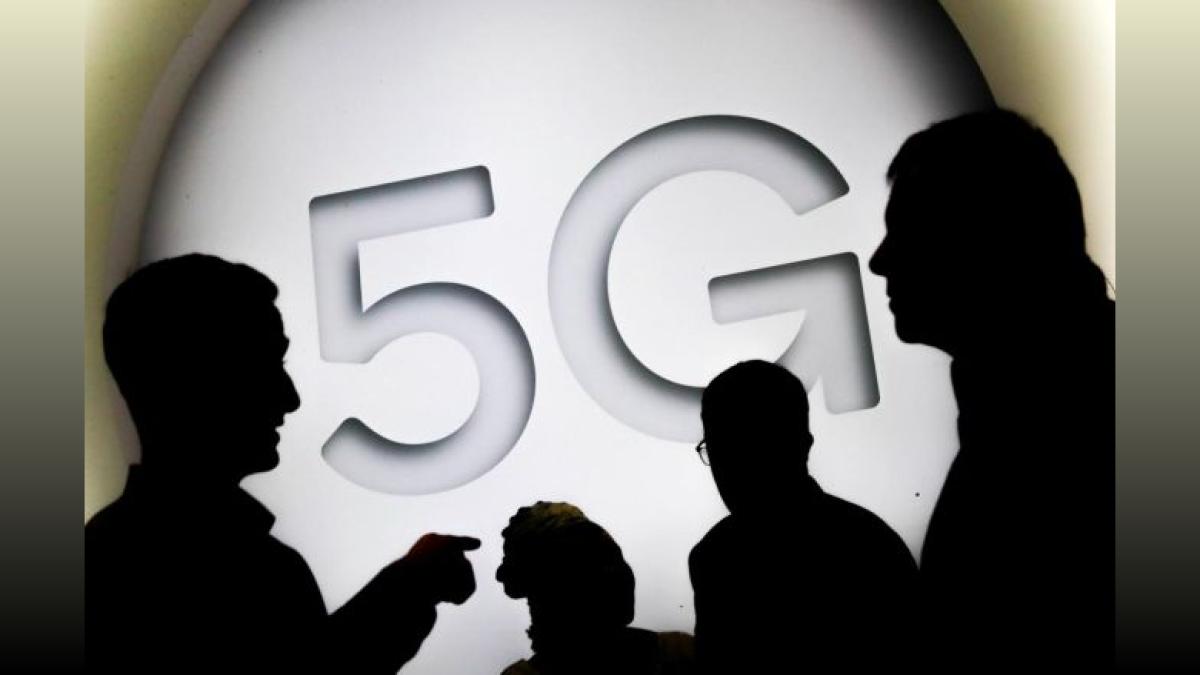Scindia: Non-Terrestrial Networks Key to Connecting India
Union Telecom Minister Jyotriaditya Scindia highlights the potential of satellite communication networks for connecting India's unconnected population and boosting digital economy growth.

New Delhi, Nov 11 (PTI) Union Telecom Minister Jyotriaditya Scindia on Monday said he is looking at the evolution of satellite communication networks or non-terrestrial networks with great optimism and believes it will open up new frontiers in communication technologies besides connecting the unconnected.
While speaking at the South Asian Telecommunication Regulators Council hosted by the Telecom Regulatory Authority of India (Trai), Scindia said the non-terrestrial networks will ignite the advent of new applications and advance the resolve of the government towards United Nations' Sustainable Development Goals.
"The advent of non-terrestrial networks, in addition to the GEO satellites, the medium earth orbit, and the low earth orbit satellites, has now given a new inflection point to telecommunication technology. I believe that presents a huge opportunity to be able to connect the hitherto unconnected population across the length and breadth of our country," Scindia said.
The government has decided to allocate spectrum to satellite communication companies without auction, which will majorly benefit companies like Elon Musk-owned Starlink.
Bharti Group-backed OneWeb and Jio Satcom have received permits for satcom services but their parent firms have opposed allocation of spectrum without auction for mobility services.
Despite resistance from telecom operators, Scindia has maintained the allocation will be done through administrative methodology as per the Telecommunications Act 2023 and allocation price and other related norms will be suggested by Trai. These remarks have been lauded by Musk.
"I see the evolution of NTN with great optimism. I believe that it will unlock new vistas in communication technologies, igniting innovative applications across diverse sectors and advancing our collective journey and resolve towards the United Nations's sustainable development goals," Scindia said.
The minister cited a multi-fold increase in data consumption and said that it is the government's resolve to grow the data centre capacity in India from about 977 megawatt at present to close to 2.3 gigawatts over the next couple of years.
He also said India has become an aggregate wireless data usage country of close to 39 per cent of the world's data capacity, which also opens up new vistas of opportunity for the country.
"It is our resolve that from our capacity today of close to about 977 MW, we will grow to close to 2.3 gigawatts of data centre capacity over the next couple of years," Scindia said.
India has advanced tremendously and telecommunication and digital technology should be the custodian of sustainable economic development, he noted.
"Today, in India, almost 10 per cent of our economy evolves from our digital economy, up three times from three and a half per cent a decade ago. The fact that our digital economy is advancing at a pace of 2.8 times of our GDP means that by the year 2026-27, the digital economy will imply 20 per cent the size of India's local economy," the minister said.
He noted that 99 per cent of districts in India have been covered by 5G and the government is committed to providing 4G connectivity in the 36,000 villages that still need to be connected no later than June of 2025.
"We will have 100 per cent 4G saturation in India by that date," Scindia added.
The government has set a goal to take leadership in 6G and provide at least 10 per cent of the patents for the technology through the Bharat 6G Alliance network, he added.
While speaking at the South Asian Telecommunication Regulators Council hosted by the Telecom Regulatory Authority of India (Trai), Scindia said the non-terrestrial networks will ignite the advent of new applications and advance the resolve of the government towards United Nations' Sustainable Development Goals.
"The advent of non-terrestrial networks, in addition to the GEO satellites, the medium earth orbit, and the low earth orbit satellites, has now given a new inflection point to telecommunication technology. I believe that presents a huge opportunity to be able to connect the hitherto unconnected population across the length and breadth of our country," Scindia said.
The government has decided to allocate spectrum to satellite communication companies without auction, which will majorly benefit companies like Elon Musk-owned Starlink.
Bharti Group-backed OneWeb and Jio Satcom have received permits for satcom services but their parent firms have opposed allocation of spectrum without auction for mobility services.
Despite resistance from telecom operators, Scindia has maintained the allocation will be done through administrative methodology as per the Telecommunications Act 2023 and allocation price and other related norms will be suggested by Trai. These remarks have been lauded by Musk.
"I see the evolution of NTN with great optimism. I believe that it will unlock new vistas in communication technologies, igniting innovative applications across diverse sectors and advancing our collective journey and resolve towards the United Nations's sustainable development goals," Scindia said.
The minister cited a multi-fold increase in data consumption and said that it is the government's resolve to grow the data centre capacity in India from about 977 megawatt at present to close to 2.3 gigawatts over the next couple of years.
He also said India has become an aggregate wireless data usage country of close to 39 per cent of the world's data capacity, which also opens up new vistas of opportunity for the country.
"It is our resolve that from our capacity today of close to about 977 MW, we will grow to close to 2.3 gigawatts of data centre capacity over the next couple of years," Scindia said.
India has advanced tremendously and telecommunication and digital technology should be the custodian of sustainable economic development, he noted.
"Today, in India, almost 10 per cent of our economy evolves from our digital economy, up three times from three and a half per cent a decade ago. The fact that our digital economy is advancing at a pace of 2.8 times of our GDP means that by the year 2026-27, the digital economy will imply 20 per cent the size of India's local economy," the minister said.
He noted that 99 per cent of districts in India have been covered by 5G and the government is committed to providing 4G connectivity in the 36,000 villages that still need to be connected no later than June of 2025.
"We will have 100 per cent 4G saturation in India by that date," Scindia added.
The government has set a goal to take leadership in 6G and provide at least 10 per cent of the patents for the technology through the Bharat 6G Alliance network, he added.
You May Like To Read
TODAY'S MOST TRADED COMPANIES
- Company Name
- Price
- Volume
- AvanceTechnologies
- 1.27 (+ 4.96)
- 14306999
- Vodafone-Idea
- 11.28 (+ 0.18)
- 10870063
- Alstone-Textiles
- 0.28 ( 0.00)
- 6655703
- Welcure-Drugs-and
- 0.45 ( -2.17)
- 6498387
- Meesho-L
- 197.95 (+ 9.79)
- 6403912






